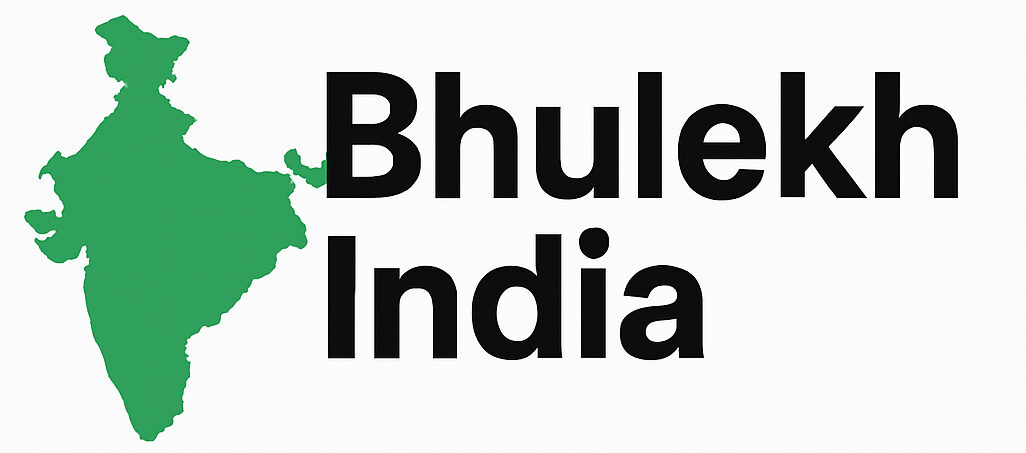Question: What is Bhulekh Uttarakhand?
Answer: Bhulekh Uttarakhand is the official digital land records portal of the state, allowing users to access land ownership, Khasra, Khatauni, and mutation details online.
Question: What is the Devbhoomi UK portal?
Answer: Devbhoomi UK is the online platform for accessing Bhulekh Uttarakhand land records, managed by the Revenue Department.
Question: What services are available on Bhulekh UK?
Answer: Services include viewing RoR (Record of Rights), Khasra/Gata numbers, Khatauni, mutation status, and Svamitva scheme details.
Question: How can I check land records online in Uttarakhand?
Answer: Visit bhulekh.uk.gov.in, click on “Public ROR,” and search using Khasra, Khata, registry number, or account holder name.
Question: What is Khasra?
Answer: Khasra is a unique number assigned to a specific plot of land in rural areas.
Question: What is Khatauni?
Answer: Khatauni is a record of land holdings by a person or family in a village.
Question: What is Gata number?
Answer: Gata number is another term used for land parcel identification in Uttarakhand.
Question: Can I search land records by name?
Answer: Yes, you can search by the account holder’s name on the Bhulekh UK portal.
Question: What is RoR (Record of Rights)?
Answer: RoR is a legal document showing ownership, tenancy, and usage rights of a land parcel.
Question: How to get an authorised copy of RoR?
Answer: Visit the nearest Tehsil Land Record Computer Centre and pay ₹15 for the first page and ₹5 for each additional page.
Question: Is the online RoR legally valid?
Answer: The online copy is for reference; for legal use, an authorised copy is required.
Question: What is the Svamitva Scheme?
Answer: A central government initiative to map rural properties using drones and issue ownership documents.
Question: How to check Svamitva status on Bhulekh UK?
Answer: Click on “Svamitva Status” on the homepage and select your tehsil and village.
Question: What is mutation in land records?
Answer: Mutation is the process of updating land ownership after sale, inheritance, or gift.
Question: How to check mutation status?
Answer: Use the “Tehsil Mutation Login” option on the portal (for officials) or visit the tehsil office.
Question: Can I access Bhulekh UK on mobile?
Answer: Yes, the portal is mobile-friendly.
Question: Is there a Bhulekh Uttarakhand mobile app?
Answer: Yes, but it is not officially affiliated with the government portal.
Question: How to download the Bhulekh UK app?
Answer: Search for “Devbhoomi Uttarakhand Bhulekh” on the Google Play Store.
Question: What is the use of Bhulekh in property transactions?
Answer: It helps verify ownership and avoid land fraud.
Question: What is the use of Bhulekh in bank loans?
Answer: Banks require RoR and mutation documents for loan processing.
Question: What is the use of Bhulekh in legal disputes?
Answer: It serves as legal proof of ownership and land history.
Question: What is the use of Bhulekh in agriculture?
Answer: It helps in availing subsidies, crop insurance, and land classification.
Question: What is the use of Bhulekh in inheritance?
Answer: It helps establish rightful ownership among legal heirs.
Question: What is the use of Bhulekh in government schemes?
Answer: It verifies land ownership for schemes like PM-KISAN.
Question: What is the use of Bhulekh in land acquisition?
Answer: It helps identify ownership and calculate compensation.
Question: What is the use of Bhulekh in urban planning?
Answer: It supports zoning, infrastructure development, and land use planning.
Question: What is the use of Bhulekh in disaster management?
Answer: It helps assess damage and distribute relief.
Question: What is the use of Bhulekh in taxation?
Answer: It forms the basis for land tax assessment and collection.
Question: What is the use of Bhulekh in real estate?
Answer: It ensures transparency and reduces fraud in property transactions.
Question: What is the use of Bhulekh in smart cities?
Answer: It supports digital governance and land data integration.
Question: Can I check land records for others?
Answer: Yes, land records are public and searchable by name or Khasra number.
Question: What is the role of the Revenue Department in Bhulekh?
Answer: It manages land records, revenue collection, and property registration.
Question: What is the role of the Tehsildar?
Answer: Tehsildar oversees land administration and revenue matters in a tehsil.
Question: What is the role of the Patwari?
Answer: Patwari maintains land records and assists in surveys and mutations.
Question: How to correct errors in land records?
Answer: Submit a correction request with documents at the tehsil office.
Question: What is the official website of Bhulekh Uttarakhand?
Answer: http://bhulekh.uk.gov.in
Question: What is the use of Bhulekh in cooperative societies?
Answer: It verifies landholding for membership and loans.
Question: What is the use of Bhulekh in land pooling?
Answer: It helps consolidate land for urban development.
Question: What is the use of Bhulekh in forest rights?
Answer: It helps recognize traditional land claims.
Question: What is the use of Bhulekh in women’s land rights?
Answer: It supports joint ownership and inheritance rights.
Question: What is the use of Bhulekh in land reforms?
Answer: It helps identify surplus land for redistribution.
Question: What is the use of Bhulekh in land titling?
Answer: It helps issue clear, marketable titles to landowners.
Question: What is the use of Bhulekh in land dispute resolution?
Answer: It provides documentary evidence for resolving conflicts.
Question: What is the use of Bhulekh in land audit?
Answer: It helps assess land utilization and productivity.
Question: What is the use of Bhulekh in land banking?
Answer: It helps manage government land for future use.
Question: What is the use of Bhulekh in biodiversity conservation?
Answer: It helps protect ecologically sensitive zones.
Question: What is the use of Bhulekh in water resource management?
Answer: It helps identify water bodies and plan irrigation.
Question: What is the use of Bhulekh in housing schemes?
Answer: It helps identify beneficiaries and allocate plots.
Explore Categories:
